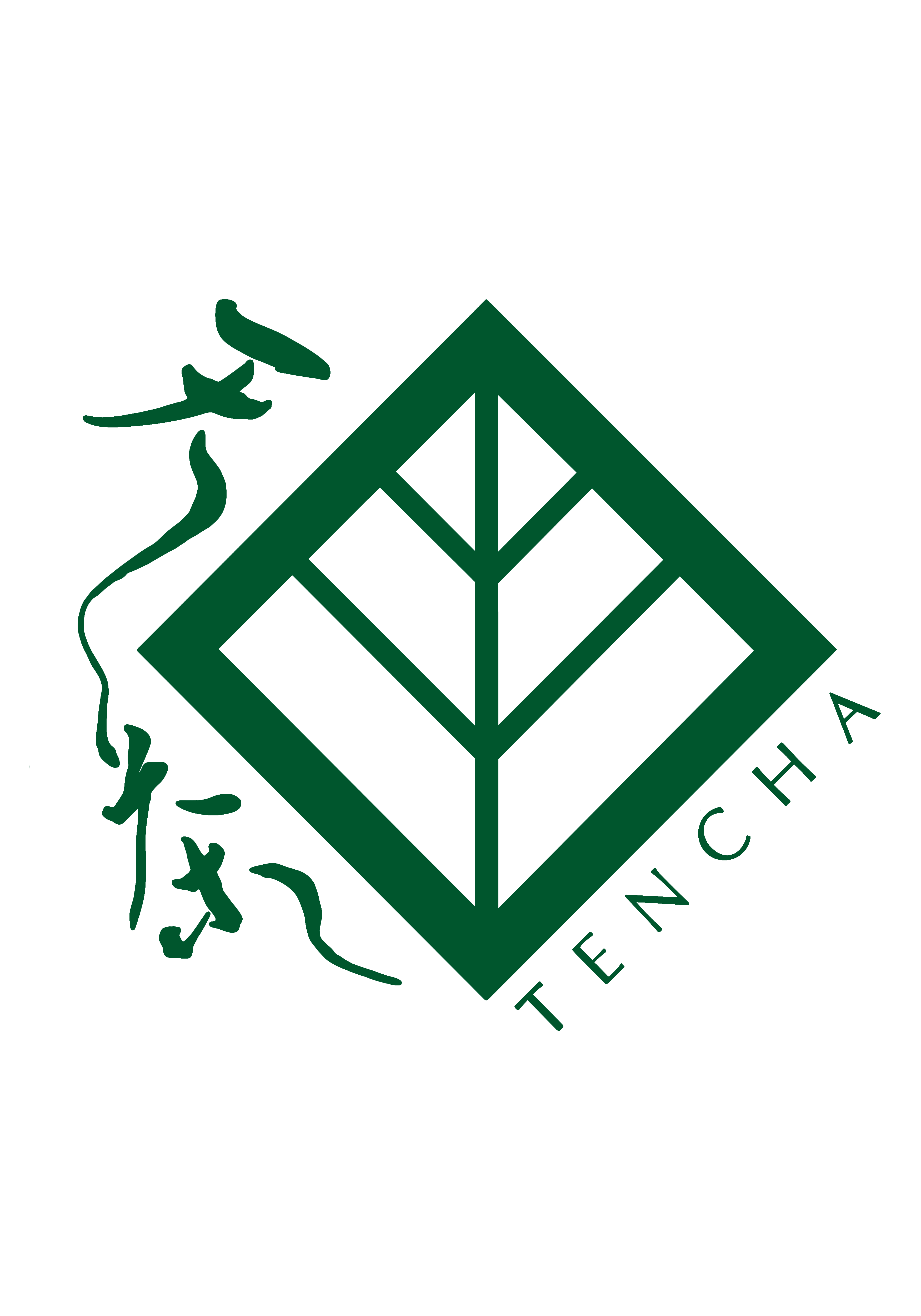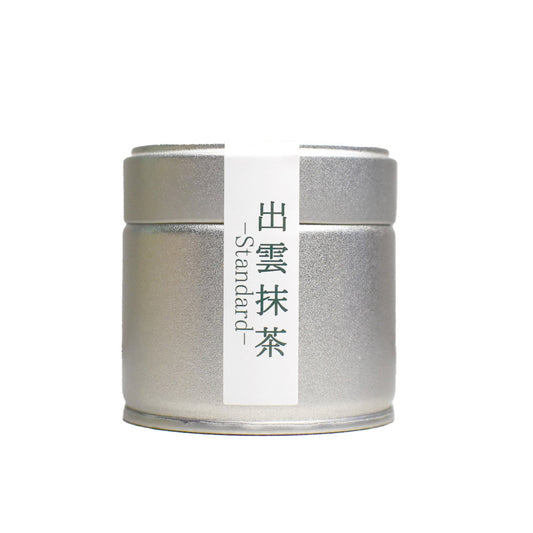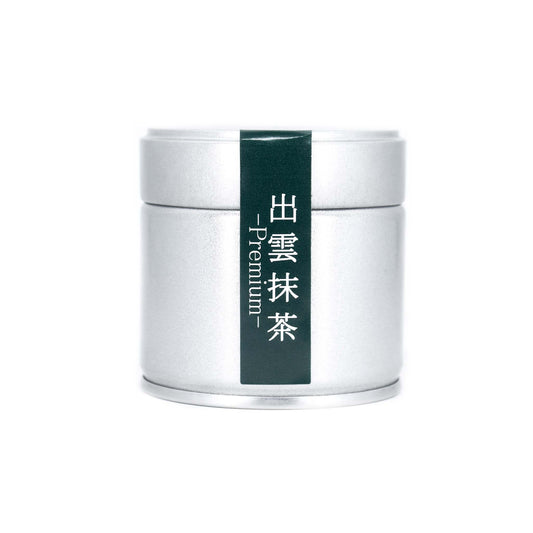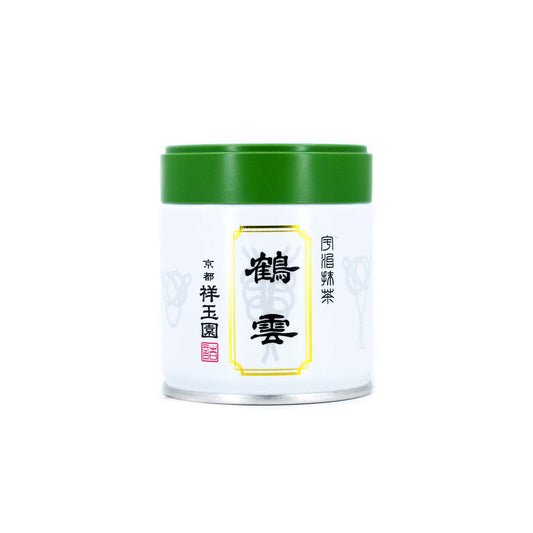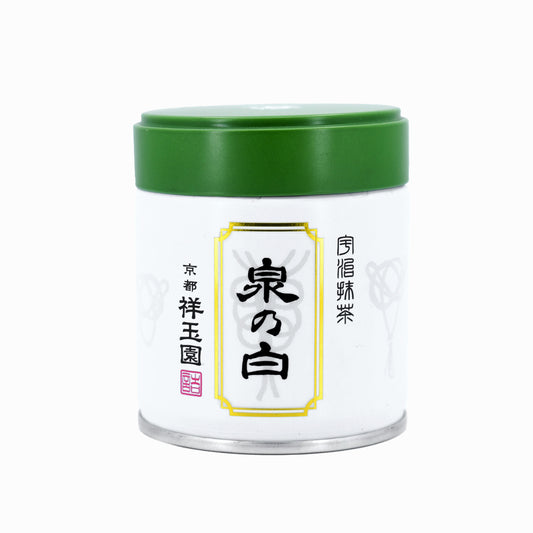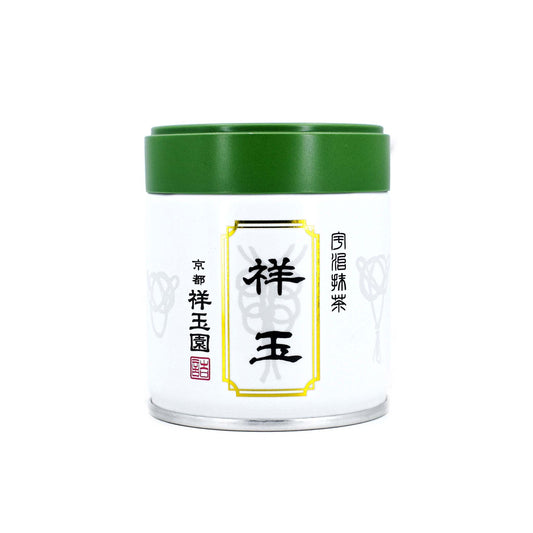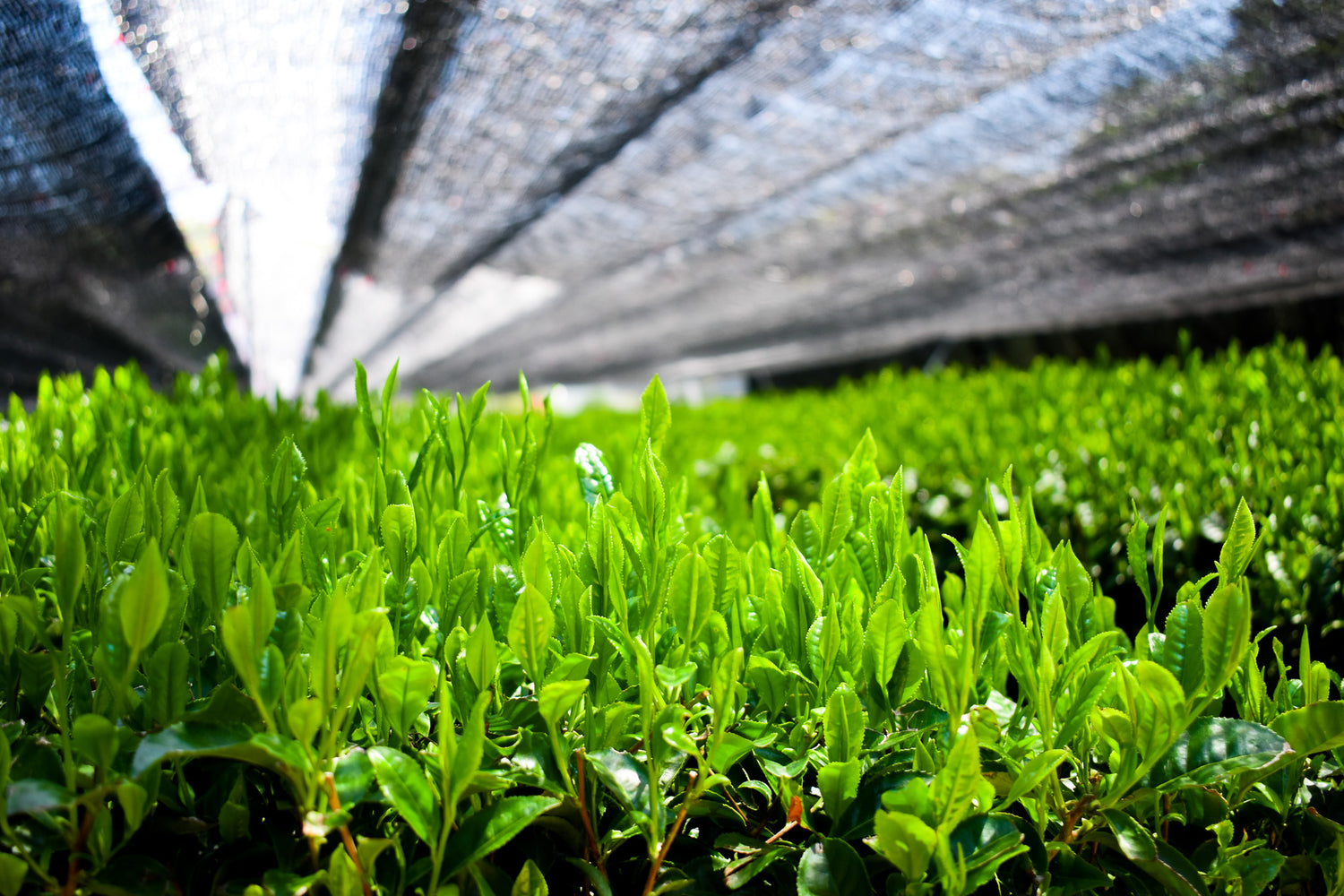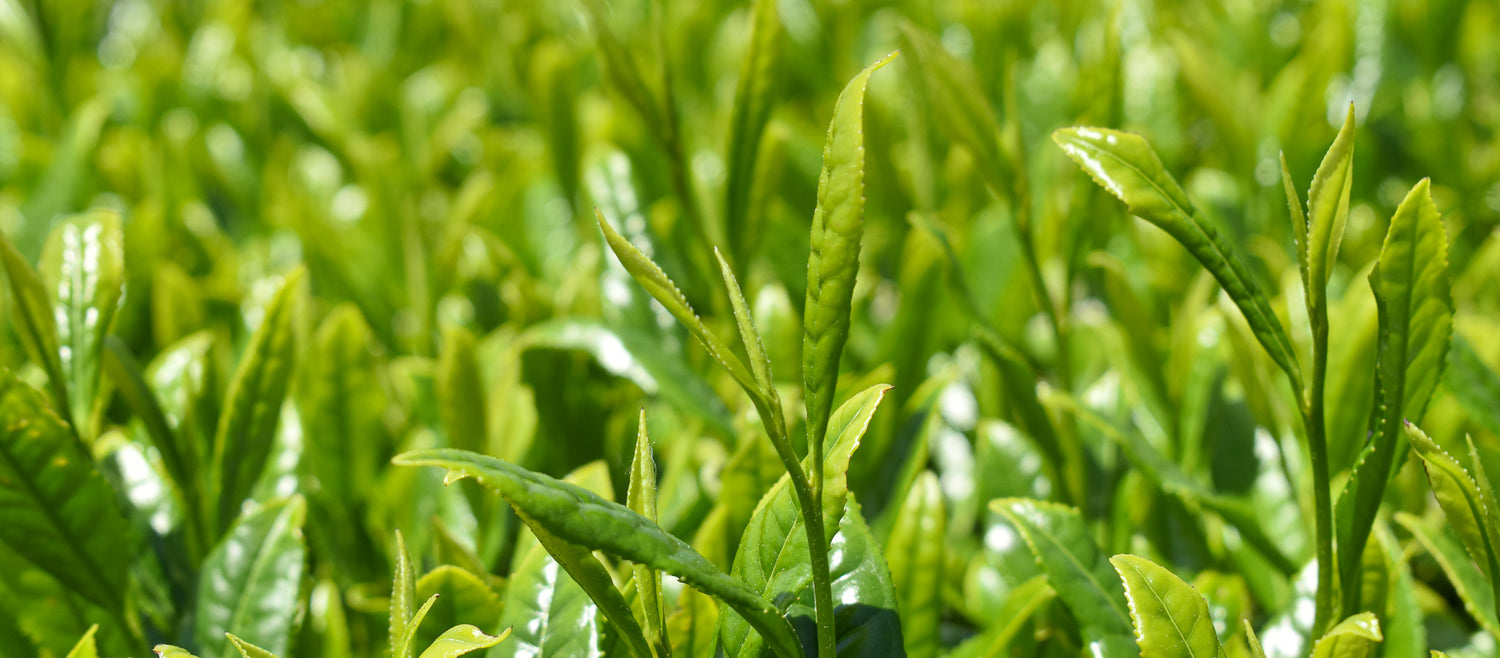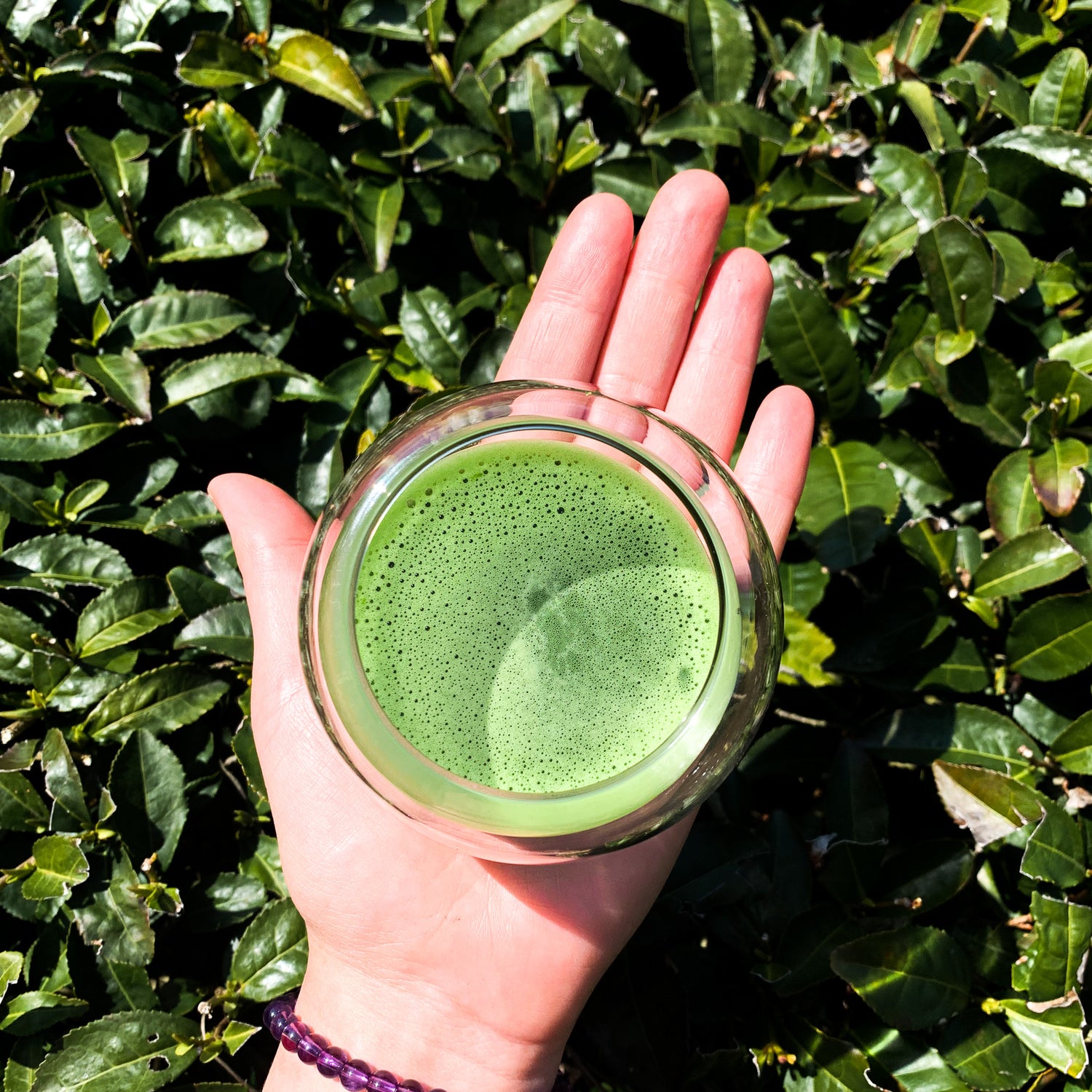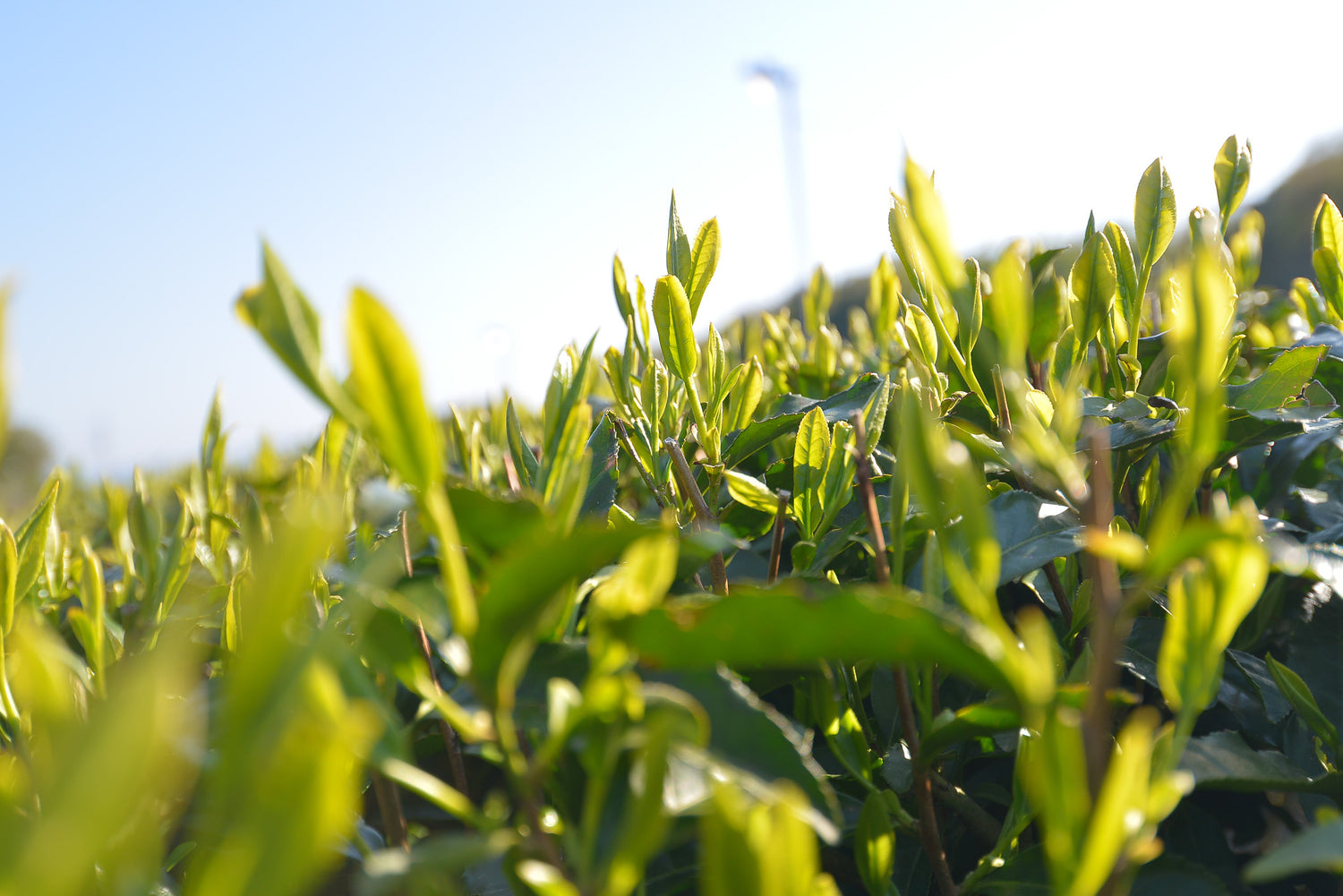-
Izumo Seicha: Izumo Ceremonial Matcha
Regular price £23.00 GBPRegular priceUnit price per -
Azuma Tea Garden: Wazuka no Mukashi Matcha
Regular price £24.00 GBPRegular priceUnit price per -
Kento Inoue: Ceremonial Kaya Uji Matcha
Regular price £25.00 GBPRegular priceUnit price per -
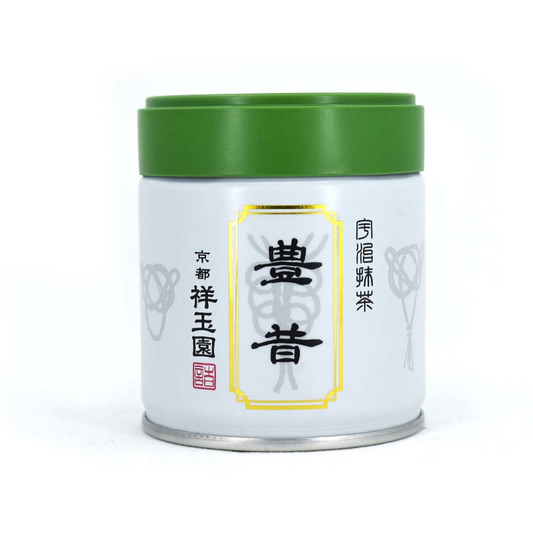 Sold out
Sold outShogyokuen: Toyomukashi
Regular price £26.00 GBPRegular priceUnit price per -
Izumo Seicha: Izumo Midori Ceremonial Matcha
Regular price £29.00 GBPRegular priceUnit price per -
Uejima Tea Farm: Imperial Ceremonial Grade, Tempaku Matcha
Regular price £30.00 GBPRegular priceUnit price per -
Kento Inoue: Partly Handpicked Tatsuya Uji Matcha
Regular price £36.00 GBPRegular priceUnit price per -
Uejima Tea Farm: Imperial Ceremonial Grade, Shikibu Matcha
Regular price £40.00 GBPRegular priceUnit price per -
Shogyokuen: Heritage Grade Matcha, Kakuun
Regular price £45.00 GBPRegular priceUnit price per -
Azuma Tea Garden: Ipponmatsu - Okumidori Cultivar
Regular price £18.00 GBPRegular priceUnit price per -
 Sold out
Sold outAzuma Tea Garden: Kanoyama Matcha
Regular price £18.00 GBPRegular priceUnit price per -
 Sold out
Sold outAzuma Tea Garden: Samidori no Ka
Regular price £23.00 GBPRegular priceUnit price per -
Shogyokuen: Matcha Izumi no Shiro, Ceremonial Grade
Regular price £20.00 GBPRegular priceUnit price per -
Shogyokuen: Matcha Iwai no Shiro, Premium Ceremonial
Regular price £22.50 GBPRegular priceUnit price per -
Shogyokuen: Matcha Shogyoku, Imperial Ceremonial Grade
Regular price £33.00 GBPRegular priceUnit price per
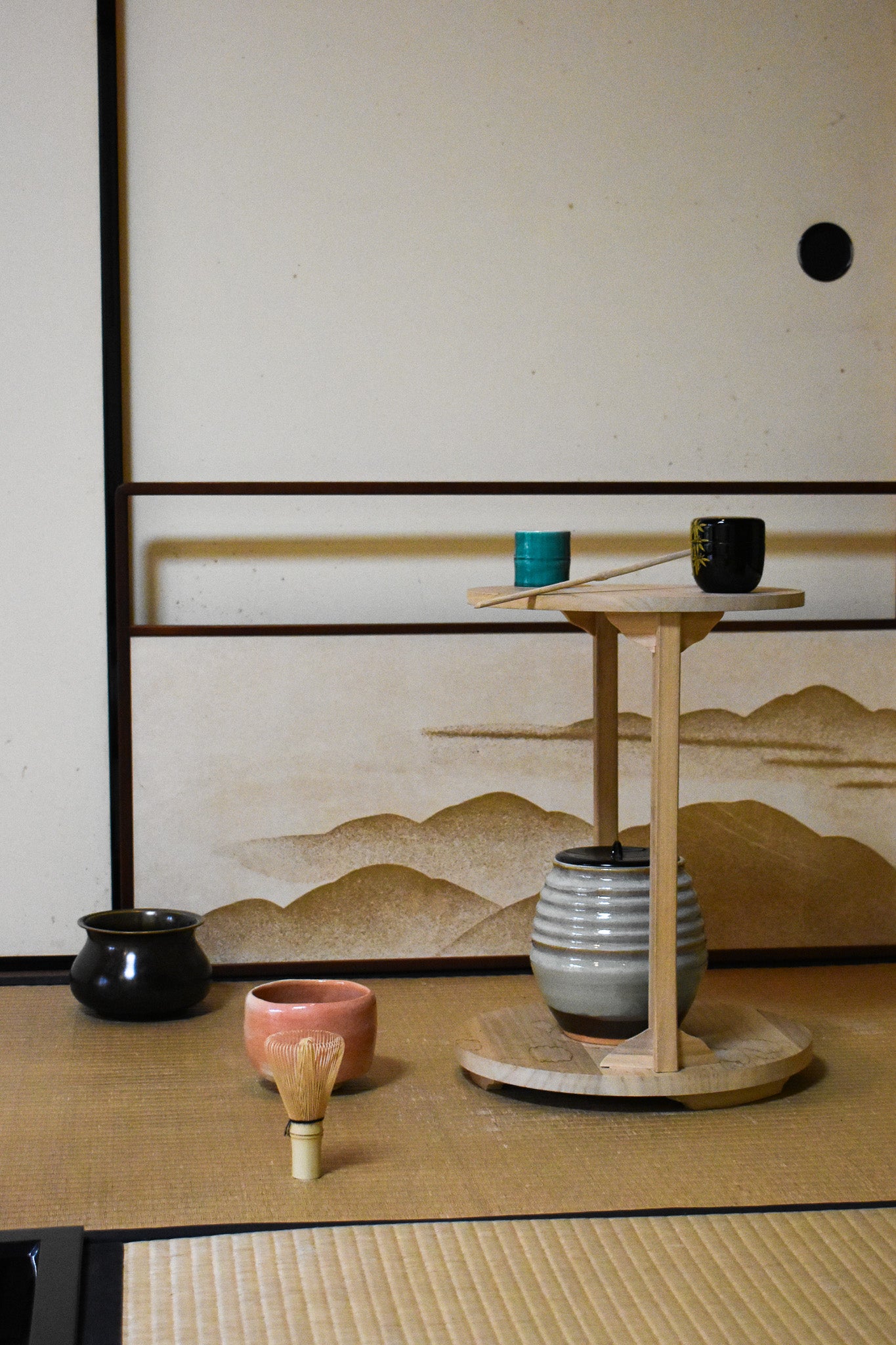
Rich In History As Well As Flavour
The history of tea dates back over a thousand years but it was the Buddhist monk Myōan Eisai who brought not only Zen buddhism back to Japan from China but also tea seeds. Eisai planted these seeds on Mount Sefuri in Saga prefecture as well as giving some to a monk from Kousanji Temple, Kyoto. This monk, Myoue Shounin planted the seeds near the temple and started the long history of the Uji tea region.
The tea that was produced in this area was seen to be the best in Japan, and soon the monks developed a new method for cultivating the tea plant.
The tea preparation that Eisai learned in China was developed and refined over the years. In the 1500’s a monk named Murata Junko started to develop the ritual of tea as a part of spiritual practice but Chado or Sado, tea ceremony, is mostly attributed to master Sen no Rikyū. Rikyu developed this tea culture in particular the tradition of wabi-cha, he emphasized the importance of rustic simplicity in the tea room and set about creating the tea ceremony as we know it today. The three main schools of Chado, Omotesenke, Urasenke and Mushakojisenke descend from his teachings.
The Many Health Benefits Of Matcha Green Tea Powder
One unique characteristic of matcha is that it is consumed in its powdered form rather than steeping tea leaves in water and then discarding them.
Drinking matcha tea can have a range of benefits for your health and is a great way to improve your well-being in a meaningful way. A few of the main benefits include the following:
-
Rich In Antioxidants:
Matcha is packed with powerful antioxidants called catechins, particularly epigallocatechin gallate (EGCG). These compounds help to combat oxidative stress, reduce cell damage, and protect the body against chronic diseases such as heart disease and cancers.
-
Boosts Metabolism And Energy:
Matcha contains a moderate amount of caffeine, which, combined with other compounds like L-theanine, provides a sustained and gentle energy boost. Unlike coffee and many other green teas, matcha promotes calm alertness without causing jitters or energy crashes. It also helps to enhance metabolism, aiding in weight management.
-
Enhances Cognitive Function:
The combination of caffeine and L-theanine in organic matcha has been found to improve brain function and mental clarity. Consuming matcha helps our brians to produce alpha waves. These waves promote relaxation, concentration, and a state of calm focus, which can be beneficial for increased productivity and reduced stress levels. They also work as a natural antidepressant.
By enhancing both body and mind, matcha powder promotes well-rounded health and is an excellent addition to a healthy lifestyle.
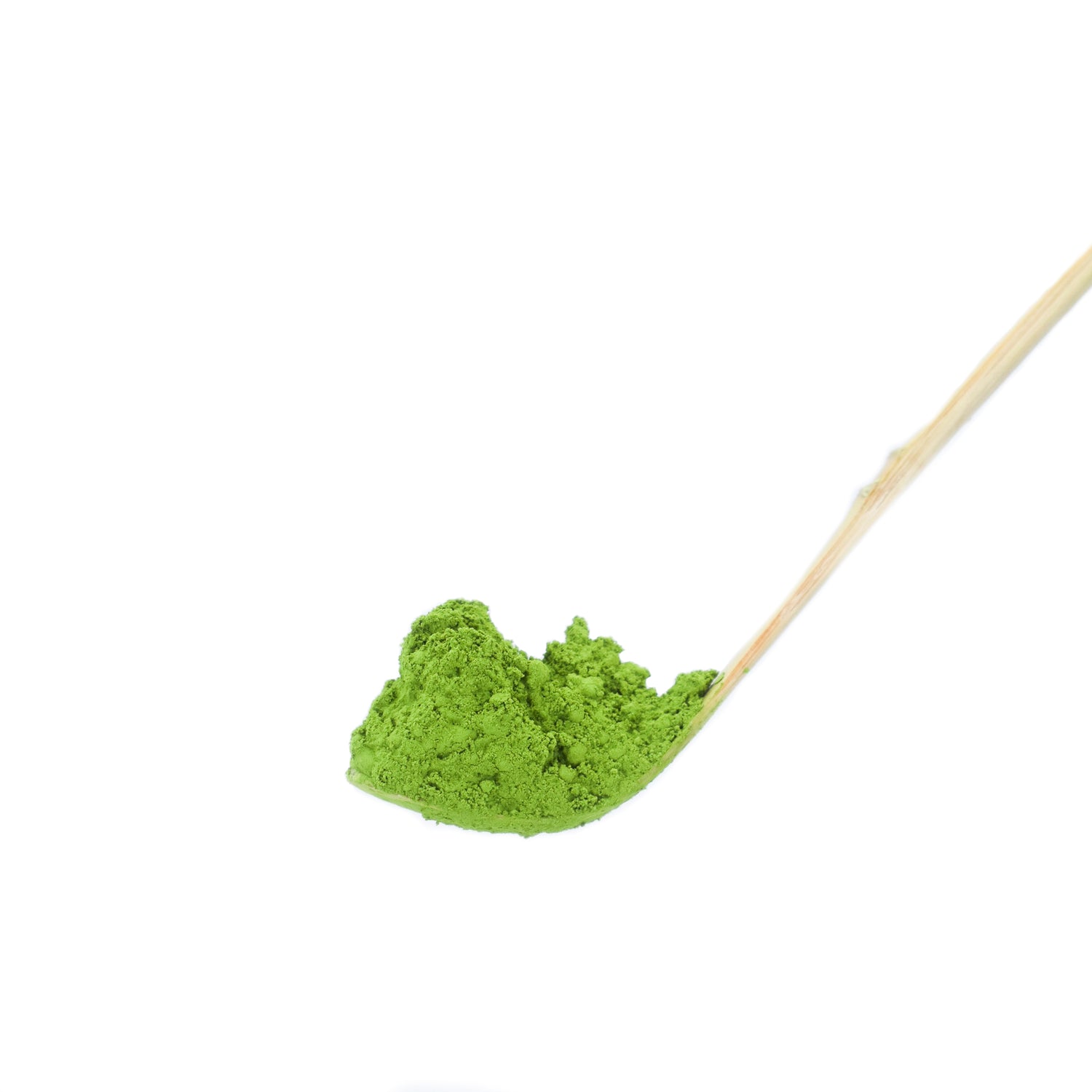
Ceremonial Grade Matcha
High quality matcha, ceremonial grade matcha is crafted from the youngest tea leaves, harvested from shaded first flush spring tea leaves. These leaves will be processed into tencha as soon as they are picked and will be allowed to mature for between 4-6 months before they will be ground on demand for the customer.
These teas are always stone-ground to create a fine powder with a silky texture. Ceremonial-grade matcha offers a delicate, sweet, and umami-rich flavour profile with minimal bitterness. It is traditionally used in Japanese tea ceremonies, where it is whisked into hot water to produce a frothy and luxurious cup of tea.
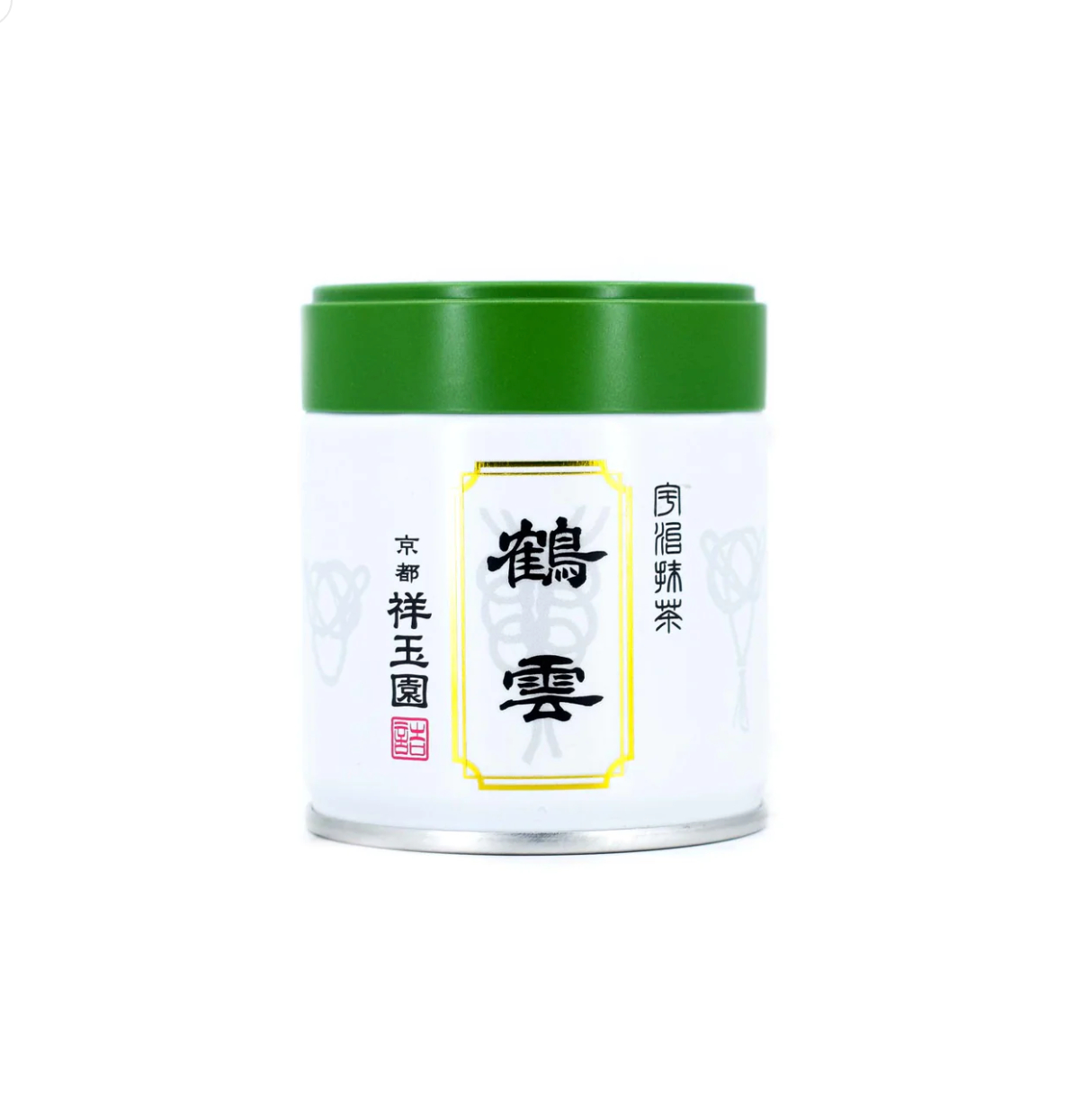
Heritage or Imperial Grade Matcha
These matchas are the highest grades of matcha tea powder. Suitable for Koicha, thick tea, preparation as part of your tea ceremony.
These teas are processed from specific cultivars and fields that produce the best quality leaves for matcha. They are usually canopy covered to avoid any damage to the tea plants during the growing period. They are also usually hand picked.
Heritage and Imperial grade matcha represents a distinctive category that reflects the traditions and unique characteristics of specific tea-growing regions. This grade emphasises the influence of soil, climate, and other environmental factors on the matcha's flavour and aroma. Heritage and Imperial grade matcha celebrates the distinct regional nuances and flavour profiles.
Other grades of matcha tea powder . . .
You may also see Premium Grade matcha tea powder - This is also a high grade ceremonial quality tea that has been produced with the utmost care and attention that is suitable for usucha preparation.
Some stores will also sell Culinary Grade matcha tea powder. This is suitable for cooking and is a lower quality. Usually this matcha is from a summer or even autumn harvest rather than spring and it often not ground by stone mill but in a large barrel with ballbearings inside.
